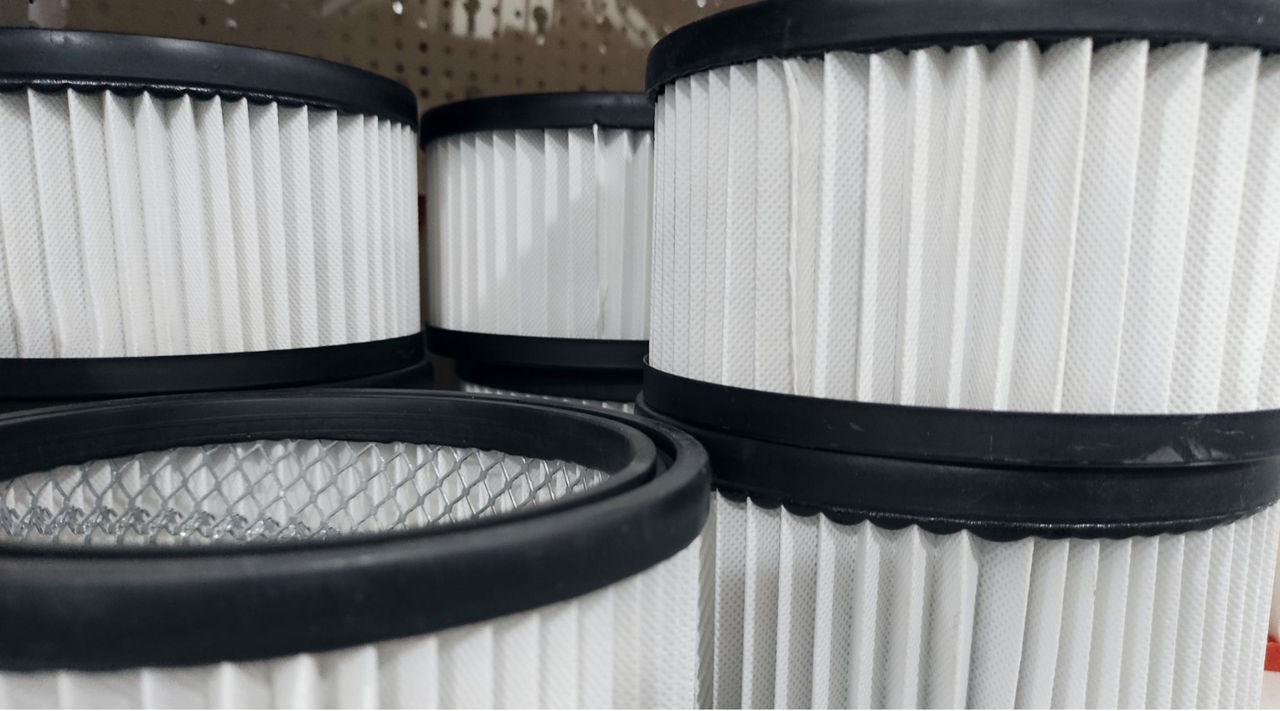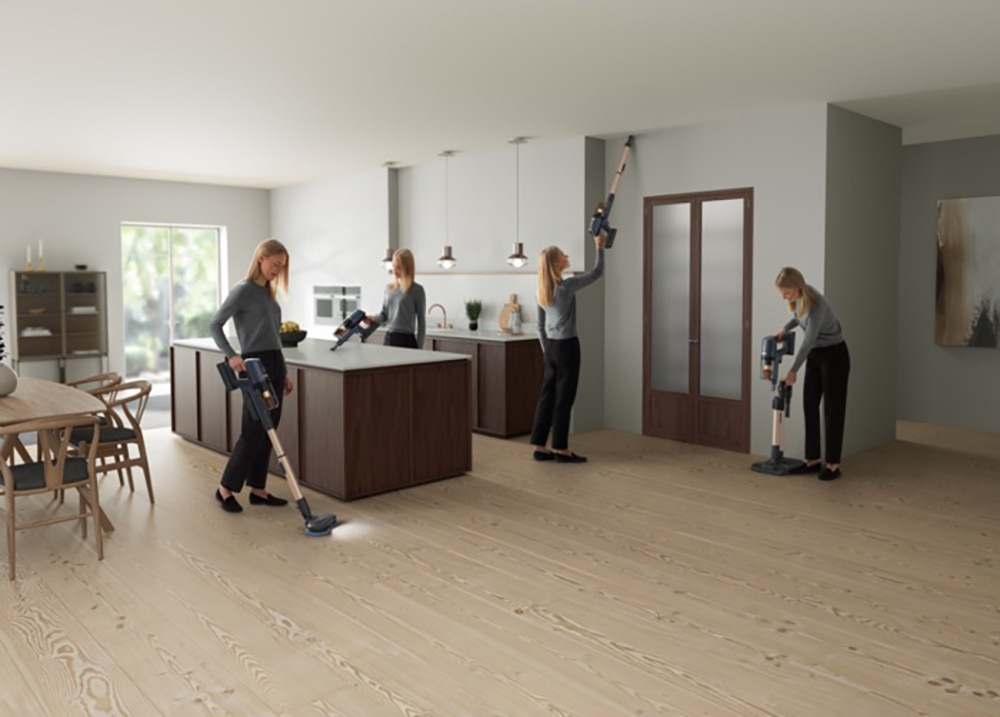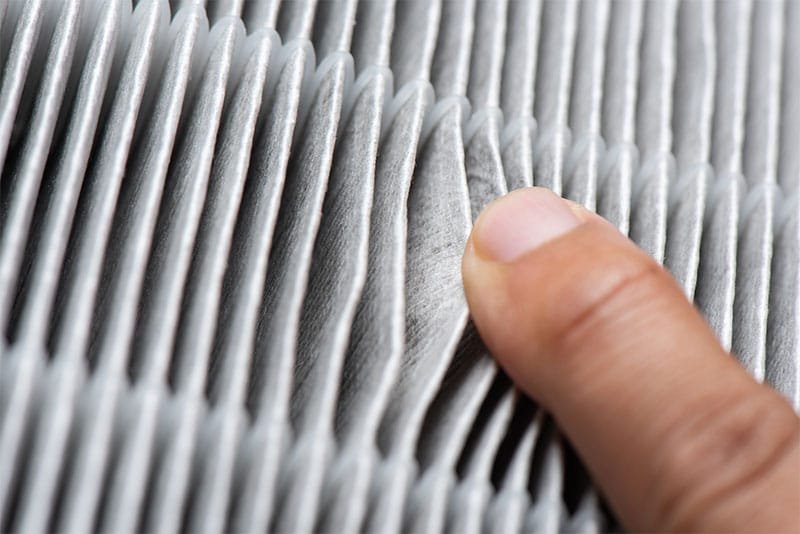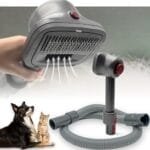Yes, you need a HEPA filter vacuum if you suffer from allergies. It captures tiny particles that regular vacuums miss.
In today’s world, clean air is essential for a healthy life. Traditional vacuums often leave behind dust and allergens. This can trigger allergies and asthma. A HEPA filter vacuum is designed to trap these tiny particles. It ensures cleaner air and a healthier home.
In this guide, we will explore why a HEPA filter vacuum is beneficial. We will also help you decide if it is the right choice for your needs. Get ready to breathe easier with our complete guide on HEPA filter vacuums.

Credit: thecleaningstation.com
Introduction To Hepa Filter Vacuums
Have you ever wondered if your vacuum cleaner is truly picking up all the dust and allergens in your home? If you suffer from allergies or just want a cleaner living environment, a HEPA filter vacuum might be the solution. These vacuums are designed to trap even the smallest particles, ensuring a healthier home. But what exactly is a HEPA filter, and why is it important?
What Is A Hepa Filter?
A HEPA (High-Efficiency Particulate Air) filter is a type of air filter that can trap a large number of very small particles. To qualify as HEPA, a filter must remove at least 99.97% of particles that are 0.3 microns in size. This includes dust, pollen, mold, bacteria, and other airborne particles.
Imagine your vacuum cleaner as a net. Without a HEPA filter, the net has big holes, letting small particles escape. With a HEPA filter, the holes are so tiny that almost nothing gets through. This means your vacuum is not just picking up visible dirt, but also the invisible particles that can affect your health.
Importance Of Hepa Filters
HEPA filters are crucial for maintaining a clean and healthy home, especially if you have allergies or asthma. Ordinary vacuum cleaners can stir up dust and allergens, making them airborne and easier to inhale. A HEPA filter ensures these particles are captured and trapped.
Think about how much time you spend indoors. The air quality in your home directly impacts your well-being. By using a vacuum with a HEPA filter, you can significantly reduce the number of allergens and pollutants in your living space. This can lead to fewer allergy symptoms and a healthier environment.
Additionally, HEPA filter vacuums are beneficial for households with pets. Pet dander can be a major allergen, and a regular vacuum might not effectively capture it. A HEPA filter can help manage this issue, making your home more comfortable for everyone, including your furry friends.
So, do you need a HEPA filter vacuum? If you care about the air you breathe and want to ensure a cleaner home, the answer is a resounding yes. Investing in a HEPA filter vacuum can make a noticeable difference in your indoor air quality and overall health.
Benefits Of Hepa Filter Vacuums
HEPA filter vacuums offer various benefits for your home and health. They provide cleaner air and reduce allergens. These vacuums improve your living environment. Let’s explore some key benefits of using HEPA filter vacuums.
Allergy Relief
HEPA filter vacuums help reduce allergens in your home. They trap dust mites, pollen, and pet dander. This leads to fewer allergy symptoms and a more comfortable living space. People with asthma find relief using these vacuums.
Improved Air Quality
HEPA filters capture tiny particles that other vacuums miss. They remove smoke, mold spores, and bacteria from the air. This results in cleaner and fresher air. Your home will feel healthier and more pleasant.
Types Of Hepa Filter Vacuums
Choosing the right HEPA filter vacuum can be confusing. There are various types of vacuums with HEPA filters. Each has unique features and benefits. In this section, we will cover the main types. This will help you find the best fit for your needs.
Upright Vacuums
Upright vacuums are popular. They are easy to use and store. Most are powerful and great for large areas. They often have larger dustbins. This means less emptying. Many models come with attachments. These help clean stairs, upholstery, and hard-to-reach areas.
Canister Vacuums
Canister vacuums have a separate unit. The main body stays put while you use the hose. This makes them lighter to maneuver. They are great for cleaning under furniture. These vacuums often have strong suction. They also come with various attachments for different tasks.
Handheld Vacuums
Handheld vacuums are small and portable. They are perfect for quick cleanups. They are great for cars and small spaces. Some models are cordless. This makes them easy to use anywhere. Despite their size, they can be powerful. Many come with HEPA filters.
How Hepa Filters Work
Understanding how HEPA filters work can help you decide if a HEPA filter vacuum is right for you. HEPA filters, or High-Efficiency Particulate Air filters, capture tiny particles that regular vacuum filters miss. This makes them a great choice for people with allergies or asthma.
Filtration Process
HEPA filters use a dense mat of fibers to trap particles. When air passes through the filter, particles get stuck in the fibers. This process removes dust, pollen, and pet dander. The fibers are so fine that they capture even the smallest particles. As a result, the air that comes out is much cleaner.
Efficiency Levels
HEPA filters must meet strict standards. They must capture at least 99.97% of particles that are 0.3 microns in size. This high level of efficiency makes them very effective. Other filters can’t match this performance. That’s why HEPA filters are trusted in medical and cleanroom environments. They are also great for home use, especially if you have pets or allergies.
Choosing The Right Hepa Filter Vacuum
Choosing the right HEPA filter vacuum can be challenging. There are many options available. This guide will help you make an informed decision. We will discuss key features to consider. We will also talk about budget considerations.
Key Features To Consider
There are several key features to look for. First, check the filtration system. A true HEPA filter captures 99.97% of particles. This includes allergens and dust. Next, consider the vacuum’s suction power. Strong suction ensures deep cleaning. Look for adjustable settings. These help with different floor types.
Ease of use is important. Check the weight and maneuverability. A lightweight vacuum is easier to handle. Look for a long cord or cordless option. This provides more flexibility. Consider the attachments. Tools for crevices, upholstery, and pets can be useful. Noise level is another factor. Quiet vacuums are better for home use.
Budget Considerations
Budget plays a significant role in your choice. HEPA filter vacuums can range in price. Determine your budget before shopping. There are options for every price range. Higher-end models offer more features. These might include advanced filtration or smart technology.
Consider maintenance costs. Some vacuums require frequent filter replacements. This can add to the overall expense. Look for models with washable filters. These can save money in the long run. Compare warranties. A longer warranty can provide peace of mind.

Credit: www.electrolux.in
Maintenance And Care
Maintaining your HEPA filter vacuum is essential for its longevity and performance. Proper care ensures that your vacuum runs efficiently and keeps your home clean. This section covers how to clean and replace the filter.
Cleaning The Filter
Check the filter regularly for dust and debris. A clogged filter can reduce suction power. Remove the filter from the vacuum. Tap it gently to remove loose dirt. Use a soft brush to clean finer particles. Avoid using water unless the manufacturer recommends it. Let the filter dry completely before reinserting.
Replacing The Filter
Filters wear out over time. Replace the filter according to the manufacturer’s guidelines. Most filters need replacement every six months. Inspect the filter for wear and tear. If it looks damaged, replace it sooner. Keeping a spare filter handy ensures you never run without one.
Common Misconceptions
When it comes to choosing a vacuum cleaner, many of us get overwhelmed by the various options available. One topic that often leads to confusion is the need for a HEPA filter vacuum. Let’s clear up some common misconceptions to help you make an informed decision.
Hepa Vs Standard Filters
Many people believe that all vacuum filters are created equal, but that’s not the case. HEPA filters are specifically designed to trap tiny particles that standard filters might miss. For instance, if you suffer from allergies, a HEPA filter can capture pollen, pet dander, and even dust mites.
On the other hand, standard filters might only catch larger debris, letting fine particles escape back into the air. This can be a significant drawback if you’re trying to maintain a clean and healthy home environment. Have you ever noticed how some vacuums leave a lingering odor after use? That’s often because standard filters fail to trap all contaminants.
Cost Vs Value
Another common misconception is that HEPA filter vacuums are prohibitively expensive. While they can be pricier than models with standard filters, the long-term value they offer is often worth the investment. Think about it: wouldn’t you rather spend a bit more upfront to ensure your home is truly clean?
Consider the medical costs and discomfort associated with allergies or respiratory issues. A HEPA filter vacuum can alleviate some of these problems by ensuring cleaner air. Plus, many HEPA filter vacuums are durable and built to last, offering you great value over time.
Next time you’re in the market for a vacuum, don’t just consider the price tag. Evaluate the health benefits and longevity a HEPA filter vacuum can bring to your household. Is saving a few bucks now worth compromising your well-being?
By addressing these misconceptions, you can make a more informed decision about whether a HEPA filter vacuum is right for you. Remember, a cleaner home isn’t just about looks; it’s about your health and comfort too.

Credit: www.youtube.com
Top Hepa Filter Vacuum Brands
When choosing a HEPA filter vacuum, it’s important to know the top brands. These brands are known for their quality and reliability. Here, we’ll discuss the leading names in the industry.
Dyson
Dyson is a well-known name in the vacuum industry. Their vacuums are powerful and efficient. Dyson’s HEPA filter vacuums are designed to capture tiny particles. This makes them ideal for allergy sufferers. The designs are also sleek and modern. They are easy to maneuver around your home. Dyson vacuums are often considered a good investment.
Shark
Shark offers a range of HEPA filter vacuums. They are known for their affordability and performance. Shark vacuums come with advanced features. These include strong suction power and easy maintenance. They are also lightweight and versatile. Shark’s HEPA filter vacuums are great for deep cleaning. They ensure your home stays free from dust and allergens.
Miele
Miele is a premium brand in the vacuum market. Their HEPA filter vacuums are known for their durability. Miele vacuums provide exceptional cleaning performance. They are also very quiet during operation. Miele vacuums are designed to last for many years. Their HEPA filters are highly effective. This ensures your home remains healthy and clean. Miele is a top choice for those seeking quality and longevity.
Frequently Asked Questions
Do You Really Need A Hepa Filter On A Vacuum?
Yes, using a HEPA filter on a vacuum is beneficial. It effectively traps small particles, improving indoor air quality.
Do I Need To Replace The Hepa Filter In My Shark Vacuum?
Yes, you need to replace the HEPA filter in your Shark vacuum. Check the manual for specific replacement intervals. Regular replacement ensures optimal performance and clean air.
Is It Worth Getting A Hepa Filter?
Yes, a HEPA filter is worth it. It removes 99. 97% of airborne particles, improving indoor air quality.
What Are The Two Disadvantages Of Hepa Filters?
HEPA filters can be expensive to replace. They also require frequent maintenance to ensure optimal performance.
Conclusion
A HEPA filter vacuum can improve air quality in your home. It captures tiny particles, reducing allergens and dust. Consider your needs and budget before purchasing. These vacuums benefit those with allergies or asthma. They also help in homes with pets.
Choosing the right vacuum makes cleaning more efficient. Cleaner air leads to a healthier living space. So, weigh the pros and cons carefully. Making an informed choice is key. Your home and health will thank you.





